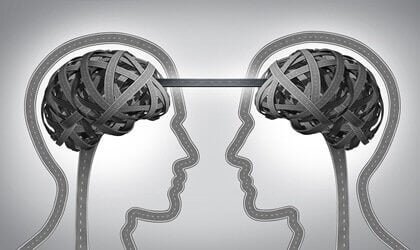The theory of psychological reactivity says that some people have a tendency in their way of perceiving the social order and its place in it, so they keep up with standards, indications or standards, for them it is more motivating to make a decision. different way.
We all know someone who seems to resist everything. If you tell her to go left, she’ll go right; If you tell him to go upstairs, he’ll sink.
- When we ask you the reason for this.
- You probably say that there is no reason to be like others.
- Or that is.
- Or things like that.
- If so.
- We are faced with something that has given arises a theory: the theory of psychological reactance.
These people often see the rules as a restriction on their freedom or unnecessary taxes. They are proud of their own rebellion, even if this rebellion is not directed towards the achievement of a relevant goal.
In fact, for the most part, is there no other purpose to follow to the opposite side?Because! Sometimes they do it openly and sometimes more in secret.
Many take reactive attitudes when they feel their freedom is threatened.
However, some people take this to the extreme. They’re called “rebels without cause. “This can cause a lot of inconvenience in your life, let’s take a closer look?
“I can’t change the direction of the wind, but I can help my sails always reach my destination. “- James Dean-
According to the theory of psychological reactivity, there are a number of parameters that define whether or not a behavior adapts to reactivity.
Sometimes people resist the rules because of their arbitrariness or injustice; in other cases, it is an inclination of their personality that drives them to do so.
The key parameters, according to the theory of psychological reactance, are:
The most typical example of reactance can be identified in adolescents.
When a parent, for example, limits a young person’s arrival time, it is quite possible that a large reactance will occur if the father’s face is not highly respected or considered legitimate. The teen will probably look for ways to escape order.
The theory of psychological reactivity says that such behaviors are problematic and generate a number of consequences for the person and their environment, it is a distorted way of dealing with disagreements, creating a disturbing regulatory vacuum.
The main difficulties that result are
When a rule or order interferes with individual freedom in something essential, the act of rebellion is entirely legitimate, however, this is very different from adopting an attitude of disobedience systematically.
We are talking about a provision that can corrode those who practice it, their entourage and the goals and objectives that derive from it.

